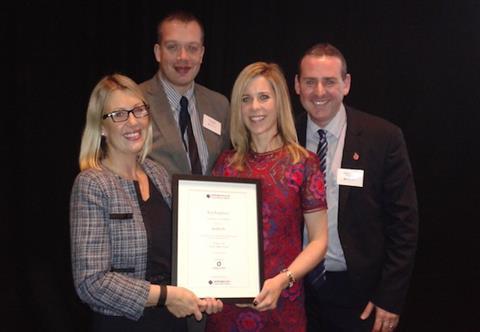
Need to know:
- Providing flexibility is one of the most effective ways of retaining and motivating carers in the workplace.
- Line-manager training is essential to ensure that direct managers understand the different ways in which they can support carers.
- Internal networks or peer-support groups can help individuals in similar circumstances to connect across an organisation.
Lin February 2017, Facebook announced plans to introduce up to six weeks’ paid leave for its US employees to care for a sick relative, as well as paid family sick time comprising up to three days’ paid leave to care for a family member with a short-term illness such as flu.
While some employees will inevitably be caring for relatives on a much longer-term basis, initiatives such as these are a positive step when it comes to supporting and engaging those with caring responsibilities.
According to Carers UK’s Building carer-friendly communities research, published in June 2016, where employers do not have policies in place to support carers, 72% of carers have reduced their working hours or given up work completely in order to care. The charity’s 2016 data also indicates that there are over three million individuals who currently juggle work with care arrangements, signalling a significant workforce demographic with very specific, yet diverse, caring responsibilities and needs.
How to support the growing number of carers in the workforce, thus, helping them to manage a positive work-life balance and motivating them to stay engaged with the business, is a key issue for many employers.
Provide flexibility
Flexibility should form the cornerstone for any policies that are designed to help carers manage both their home and work lives. Sarah-Jane Butler, founder and chief executive officer at Parental Choice, says: “The greatest gift an employer could probably give a carer, whether it’s somebody with young children, somebody with disabled children, or [eldercare] responsibilities in terms of their parents, is the ability to be flexible with their time.”
Flexible-working arrangements, which could include varying start and finish times, working from home or part-time working, can be arranged on either a short-term, unplanned basis as emergencies or situations arise, or as part of a long-term working structure, to suit regular hospital appointments, for example. These can be arranged on either a formal or informal basis.
Flexible working can also tie in to flexible-leave arrangements, which could include a carers’ leave or an emergency leave policy. Employers could also present carers with the opportunity to buy and sell holiday days.
Andrew West, human resources manager, reward and systems at the Royal College of Nursing, which offers emergency care leave, terminal care leave, and occasional crisis leave for staff, says: “Those kind of workplace support mechanisms can be woven into the fabric of the workplace quite easily. I don’t really see [a] flexible-working package as a benefit as such; it’s more like a way for us to get the best out of the people we have.”
Royal College of Nursing employees with longer-term caring responsibilities can also make use of the organisation’s Smart Working policy, which includes arrangements such as home working, term-time working, temporary reduced hours, and job shares, among others.
This give and take between employees and employers can help to decrease stress levels and the distraction of juggling work and home commitments, thereby supporting employee motivation, performance and productivity. “Demonstrating that [employers] understand that people have got lives and pressures outside of [work has] got to be a good tool for increasing engagement and motivation,” says West.
Workplace practices
Benefits that employers can make available to their caring population include back-up or emergency childcare, nursery places or in-home care, or support in finding childcare and eldercare. They can also offer support through employee assistance programmes (EAPs) and helplines. Simple adjustments such as permission to keep a mobile phone to hand or a car parking space close to the workplace so an employee can leave quickly in an emergency, meanwhile, can make all the difference.
Internal networks, as well as signposts and access to external networks, are also a useful way to help connect carers within an organisation and provide a pool of peer support that can be invaluable in engaging carers with their employer. Katherine Wilson, head of Employers for Carers, says: “People enjoy the peace of mind and the feeling that they are not alone. It helps to make them feel less vulnerable and that there are other people who have been through a similar situation.”
Senior staff members who join in with the network can also be viewed as role models, demonstrating that caring responsibilities do not have to impact on career success within an understanding work environment, adds Wilson.
Workshops or seminars on subjects such as managing and reducing stress, and general health and wellbeing, can prove popular in tackling specific areas that carers may struggle with, not only providing relevant and useful information, but acting to signpost internal policies or benefits that could be utilised by carers.
Carers champions, meanwhile, can raise awareness that caring responsibilities are viewed as an important issue within the workplace, while also providing an extra touch point for affected staff who perhaps do not feel confident or comfortable discussing their personal situation with their line manager.
Providing effective policies and tools to support working carers can also create ambassadors for the business, says Alex Bennett, principle in the Positive Ageing team at Mercer. “There is a strong opportunity [for employers] if [they] can support something the right way. [They] can engage [with employees] on a level that is very deep and very personal, and [employers] get a very strong ambassador for [the] business,” he adds.
Importance of attitude
As boundaries between home and work lives blur, it is important for employers to understand issues outside of the workplace that could impact employee motivation, engagement and wellbeing. Recognising that no two caring situations are the same and that assumptions cannot be made about a group as diverse as carers is vital when creating and implementing caring policies.
Line-manager training is also key to engaging carers at work because they are often the first port of call if an employee needs help accommodating caring responsibilities. “A line manager may not feel wholly equipped to deal with an issue if they have not come across it before,” says Employers for Carers’ Wilson. “Communication, including caring scenarios and case studies, is very important as part of wider line manager education.”
In some cases, providing flexibility and making small adjustments can be a more viable and valued solution than having a physical financial spend on a token scheme, adds West. Flexibility, in terms of both mindset and practicalities, can help to give carers the freedom at work to manage caring responsibilities alongside other commitments.
Open communication
Creating a workplace culture that allows for open conversations around caring is key. “If [employees] can have the conversation early, something can often be put in [place] that can support [them], and it means the business retains the key talents and skills of the person,” says Wilson.
National events, such as Carers Week, can be a useful way for organisations to highlight the support available to carers, although wider health and wellbeing events and activities can also serve as an opportunity to raise awareness. Organisations can also provide employees with information about how they can support their homelife commitments through channels such as the intranet, staff training and inductions.
Family-friendly events, such as family parties in the workplace or bring-your-child-to-work days can also help employers and colleagues to better understand employees’ specific caring responsibilities. This can further demonstrate the wide range of family situations that can exist among a workforce.
A strategy to motivate and engage carers in the workplace should centre around providing flexibility and support that enables employees to enjoy a fruitful career alongside caring responsibilities. Demonstrating understanding and empathy, as well as access to benefits that support the physical and mental wellbeing of carers, can help these employees feel recognised and valued at work.
As Bennett says: “If you can get engagement, it opens up a whole new world of areas [of] difference. If you think about somebody who [currently] doesn’t have a working carer commitment, but they’ve been introduced into that world and they’ve seen the issues that colleagues might be facing, [that can create engagement]. When we get that level of engagement and we’re keen to show them surprising and innovative things, that kind of grabs people’s attention. The same thing applies for an employer, if they address this issue with their employees, they find that people come forward with some very personal and engaging stories and then the solutions that they might find people deployed are surprising, innovative and grab people’s attention.”

Carillion Working Mums Network gives carers a community and voice
Multinational facilities management and construction services organisation Carillion launched its Working Mums Network as an affinity group in November 2012, to create a vocal community for working mothers in the business’s UK branch as part of a wider diversity and inclusion strategy.
With approximately 300 members, the Working Mums Network was the first of its kind in Carillion, connecting working mothers within the business through an internal social media network, email distribution list, face-to-face meetings and regional networking events. The group also arranged speaker events, with senior management from within the business delivering talks on their experiences as working parents.
In 2013, the Working Mums Network hosted a competition to reward line managers who support working mums on a day-to-day basis, with employees nominating managers who had helped accommodate their caring commitments at work.
The group also plays a pivotal role in leadership decisions that may affect working mothers, for example, the network was asked to present a proposal for an enhanced maternity leave policy and also compiled a response to the government’s consultation on childcare legislation.
Katarina Fidler, head of innovation, building at Carillion and founder of the Working Mums Network, said: “The network has been instrumental in developing proposals and supporting the senior management team with policy changes, which is basically capturing the voice of the employee and feeding it into the management decisions, which is really powerful.”
Carillion won the Workingmums.co.uk 2016 Top employer award for family support (pictured).

Viewpoint: True flexibility is essential for carers' work-life balanceWorking Families published the 2017 Modern Families Index in January. This found that one in five parents and carers who are working full time are putting in five extra weeks a year, the equivalent of their annual holiday allowance, in unpaid work. They are stressed and burnt out. Disappointingly, over 40% of working parents and carers we spoke to have felt the need to bend the truth to their employer about family life conflicting with work. Nearly half would not feel confident talking to their employer about placing boundaries around work. Unsurprisingly, over a third feel resentful toward their employer about their work-life balance.If this is how they are feeling, how can they best be supported in the workplace, not least so they are motivated and engaged? It is vital that employers create a ‘safe’ environment where parents and carers feel confident talking about work-life issues without worrying that it will create a negative impression.Viable options for flexible working are key. We must move beyond flexibility as ‘exceptional’, an unwelcome imposition that hinders getting the job done. A healthy dose of realism when it comes to what can be done in the hours available is crucial. Managers should ensure work is designed in a way that helps both employers and employees find a good work-life fit. Kirstie Axtens is head of employer services at Working Families
Statistics:
- 89% of employer respondents want greater emphasis and encouragement from the government towards the provision of employee benefits for carers (Source: Jelf Employee Benefits, January 2017)
- 83% of employer respondents do not think they are aware of all employees who act as carers in their non-work time (Source: Jelf Employee Benefits, January 2017)
- 28% of manager respondents state that their organisation has formal policies and practices in place to support employees with caring responsibilities (Source: Axa PPP Healthcare, September 2016.)
- 38% of employee respondents who balance care and work are uncomfortable discussing caring in the workplace (Source: Carers UK, June 2016)
- 35% of employee respondents do not feel that their employer understands their caring role (Source: Carers UK, June 2016)











